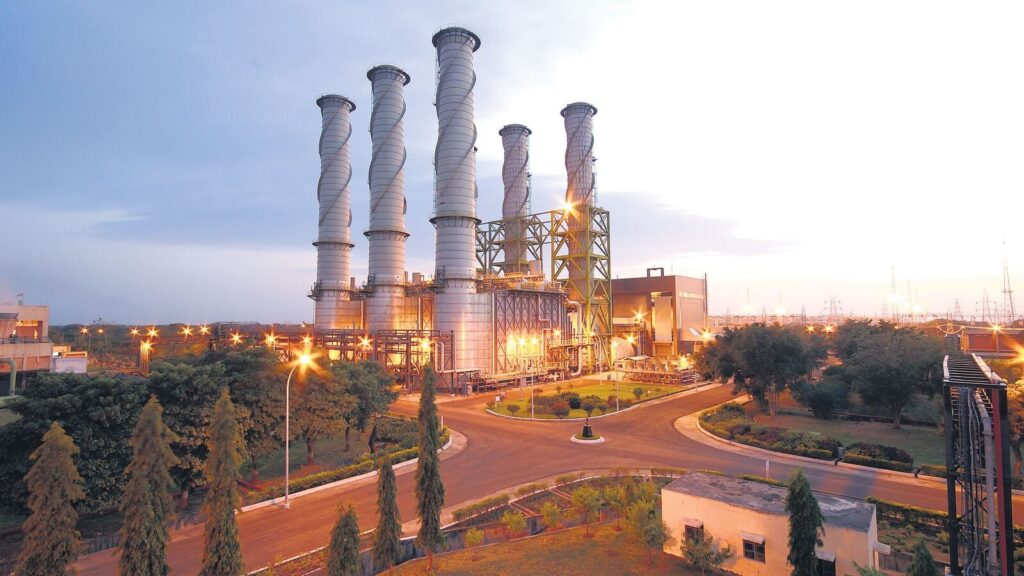NTPC Green in talks to supply sustainable aviation fuel to British Airways, Lufthansa, other global airlines

NEW DELHI
:
NTPC Green Energy Ltd (NGEL) is in talks with global airlines including British Airways, Lufthansa, Singapore Airlines, and Virgin Atlantic, among others, to secure deals for supplying sustainable aviation fuel (SAF).
The cleaner aviation fuel will be supplied from NGEL’s green hydrogen hub in Andhra Pradesh, which is yet to begin production, said a person familiar with the developments.
“NGEL has already started talks with several possible SAF offtakers. The talks are in an initial stage. The industry is waiting for standards for SAF in India and globally, which would help finalize these offtake agreements,” this person added.
A Lufthansa spokesperson, in reply to a mailed Mint query, said: “While we cannot comment on any specific commercial discussions, I can confirm that Lufthansa Group is one of the largest purchasers of SAF in Europe, and we are always open to opportunities to increase the supply of this important resource.”
A Singapore Airlines spokesperson said the company does not comment on any “confidential discussions” that it may or may not be having.
Queries sent to NTPC, British Airways, and Virgin Atlantic remained unanswered till press time.
SAF refers to non-conventional aviation fuel produced through alternative feedstocks, including grains, alcohol, and residual food waste.
NGEL green energy plans
The subsidiary of state-run power generation major NTPC plans to begin producing SAF at its green hydrogen hub in Pudimadaka, Andhra Pradesh, in 2026-27.
NGEL would develop and also lease out facilities for renewable energy generation and production of green molecules, including green hydrogen, green ammonia, sustainable aviation, green methanol, ethanol and green urea at the hub, projected to be constructed with a capital expenditure of ₹1.85 trillion.
Spread over 1,600 acres near Vishakhapatnam, the hub is expected to produce 1,500 tonnes of SAF every day, along with 1,500 tonnes of green hydrogen, 4,500 tonnes of green ammonia, and 1,500 tonnes of green methanol, among others.
The diversification towards green molecules comes against the backdrop of NTPC’s ambitious plan to decarbonize its operations and enter new-age green energy spaces, as the window for coal-based power, the power generator’s conventional business, is fast closing.
The largest power generation utility, through its green energy arm NGEL, plans to pump in ₹5 trillion in the green energy and green molecule space by 2030. NGEL currently has a capacity of about 6 gigawatts (GW), and it aims to expand it to 19GW by 2026-27. About 90% of the planned 60GW by 2030 would comprise solar power capacity.
Demand expectations
The demand for SAF is expected to gain momentum, with countries coming up with mandates for SAF use by airlines. Global mandates are likely to come by 2027. In the UK, the SAF mandate will start next year at 2% of the total jet fuel demand of the country and gradually increase to 10% by 2030 and then to 22% by 2040. From 2040, the obligation will remain at 22% until there is greater certainty regarding SAF supply.
India had plans to introduce mandatory 1% SAF blending from 2025 and increase it in subsequent years. On 25 September, The Indian Express reported that the Centre is likely to come up with mandates for blending of SAF with aviation turbine fuel (ATF) for domestic flights only after the global mandates for international flights kick in from 2027.
With the prospects of a growing market for SAF and India’s ambitious 2070 target to achieve net zero, several Indian state-owned conventional energy companies are diversifying into this nascent sector. Public sector oil refining and marketing companies Indian Oil Corp. Ltd and Bharat Petroleum Corp. Ltd are also working on the production of SAF.








